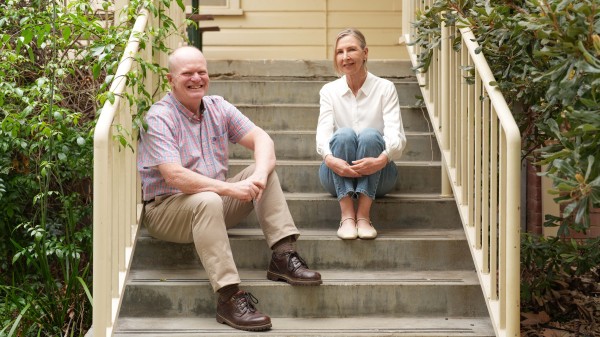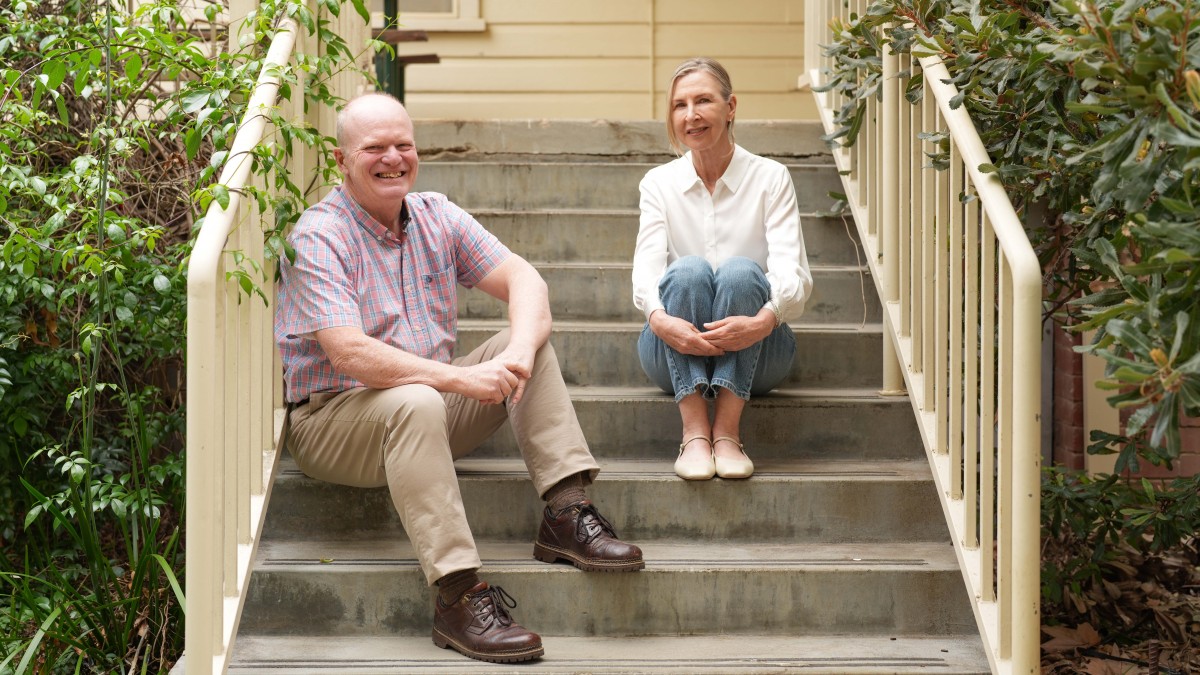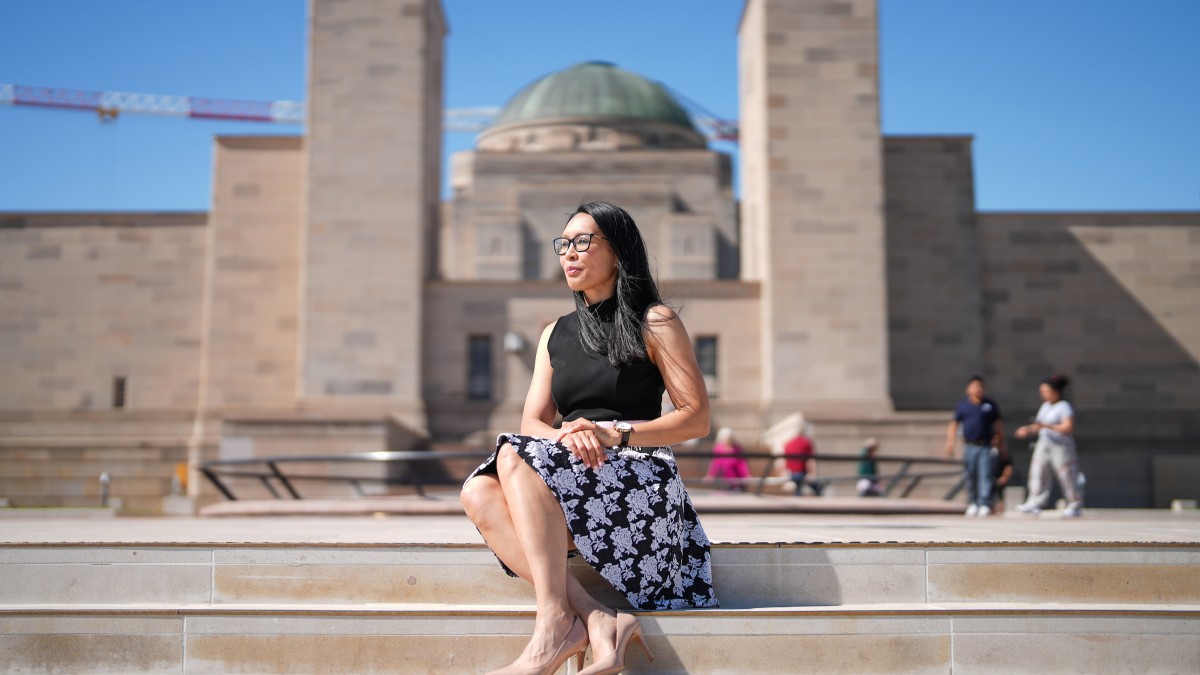Alysia Robertson must like a challenge. After completing half an education degree, Ms Robertson switched cities and courses, completing a Bachelor of Psychology in Sydney. She completed her Honours on economic game theory, before branching into a completely new theory for her PhD, studying group therapy leadership from a social identity perspective at the Australian National University in Canberra.
Made famous by countless films and television series, group therapy is stereotyped on screen as a place where people sit around, poked and prodded by a leader who is trying to get someone to open up and tell the group their inner most feelings.
But are these leaders prepared enough to work in the role of a facilitator in such groups?
Ms Robertson, who is completing her PhD at the Australian National University School of Medicine and Psychology, realised there wasn’t much research on how to lead therapy groups effectively, and set about looking into the role that facilitators could play in making therapy groups more beneficial.
“I thought that therapy groups might be more effective if they were led by people who have some theoretical background to why they’re there and what they’re doing,” Ms Robertson said.
“So the purpose of my PhD has been applying social identity leadership theory to group therapy leadership for the first time. Being an identity leader is all about representing the key identity of the group – being seen as ‘one of us’ and working with people.
“In therapy, being seen as ‘one of us’ might have a lot to do with the therapist’s own experience of mental ill-health, and they might be able to show that they understand the unique experiences of their group by talking about their own mental health journey.”
Ms Robertson said a therapist talking about them self can be frowned upon, but the benefits can be quite powerful because the client can often feel less alone and more hopeful if they know the therapist has had similar experiences and recovered.
“It can be really powerful because the client can feel less alone,” she said.
“Group therapy is sometimes seen on TV – take Breaking Bad for example – Jesse Pinkman goes to group therapy in rehab and the therapist discloses that he recovered from his own substance abuse after accidentally killing his daughter while driving under the influence of drugs.
“That’s sort of what I’m talking about here, somebody who tells their story and people can connect with it, and have hope that if even this guy who has accidentally run over and killed his child can stop using substances, then maybe there’s hope for them too.”
Ms Robertson plans to submit her PhD in the middle of 2024, but has already earned praise for her research, including winning the Outstanding Postgraduate Research Award at the Society of Australasian Social Psychologists (SASP) conference in November 2023.
Entrants were asked to submit an abstract of their PhD, of which six finalists were selected to present their research at the conference. Secret judges among the conference audience then chose a winner.
“I'm usually OK presenting in front of people, but because of the pressure of, you know, not knowing who the judges were and competing against these really amazing PhD students as well, I did feel extremely nervous,” Ms Robertson said.
“It was really validating because I'm using social psych theory but applying it in a clinical context.
“So the fact that this research was acknowledged by the broader social psychology community reflects what I think is a growing interest in applying social psychology principles to health and clinical contexts.
Social psychology looks at things such as prejudice, discrimination and leadership and explores how an individual’s behaviour can be influenced and shaped by these social environments.
“It was great to see that applying a popular leadership theory to group therapy was received well. Group therapy is probably more likely to be led by women and is a softer style of leadership than is typically studied: it's supportive and prioritises the agency of the people in the group rather than about exerting influence from the top down.”
Reducing social anxiety
Ms Robertson says her academic success at ANU is largely due to support received by peers and her supervision team – Professor Tegan Cruwys, Dr Mark Stevens, and Professor Michael Platow.
“Tegan especially has really helped me to learn a lot - when I first started my PhD, I didn't know anything about the theory I had chosen to apply and had just branched into a completely new area.”
She also collaborated closely with clinical PhD student Jessica Donaldson while running a group therapy trial for one of the studies for her PhD. The trial looked whether a group therapy program aimed at building social connections could reduce social anxiety and what facilitator behaviours might make the therapy more effective.
Ms Donaldson managed the risk assessment of the trial, allowing Ms Robertson to focus on the day-to-day management.
They recruited people for the trial by putting up flyers around ANU: in the medical centre, counselling centre, and during O-week. They also recruited online, and while the sample group was primarily students, the duo also recruited at psychology clinics around Canberra.
“People are keen to go to therapy but it can be really difficult to get them in the door,” Ms Robertson said.
“So Jess and I, supported by our supervisor Tegan, we did a lot of brainstorming … is it more helpful if we ring participants first? What if we email to let them know we're going to ring? Just really trying to build connections with people first, before even starting the research.”
Ms Robertson said the trial was the biggest challenge she faced during her PhD research, but the outcomes had been heartening.
“I think that one of the main contributions of my thesis to the literature will be the collation of actual tangible things that people can do to make the therapy more effective and be more effective leaders,” she said.
“We did find when the groups were all university students it worked really well and it provided an opportunity for students experiencing social anxiety to make friends in a safe environment.
“Some participants said things like that they made the first real friends they had made at university.
“So I think that beyond the benefit to our research, there was an actual benefit to people in the world, which is always nice.”










